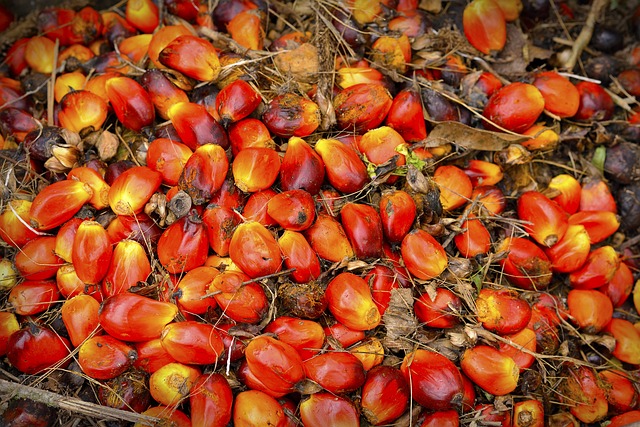관심 있는 상품에 대한 기사를 찾아보세요
3972개의 콘텐츠 검색됨
오피니언
전문가 오피니언과 인사이트를 통해 인도 오일 및 지방의 최신 농업 주제를 발견하세요. 이는 전 세계 시장 분석가 팀이 제공합니다.
현지 업데이트
현장 전문가의 통찰력으로 제공되는 거의 실시간 업데이트를 통해 인도 오일 및 지방의 시장 상황, 공급망 중단, 가격 변동에 대한 정보를 얻으세요.
뉴스
정책 변화, 비즈니스 통찰, 기술 혁신 및 인도 오일 및 지방에 영향을 미치는 시장 동향을 다루는 최신 농업 뉴스를 통해 최신 정보를 얻으세요.
주간 상품 업데이트
전문 글로벌 분석가가 제공하는 인도 오일 및 지방 주제 및 주요 상품에 대한 프리미엄 주간 업데이트를 받아보세요.
리포트
인도 오일 및 지방의 주요 트렌드, 새로운 기회, 그리고 중요한 문제를 다루는 상세 리포트를 심층 분석하세요.
인기 주제
인도 오일 및 지방의 주요 이슈와 관련된 기사를 탐색할 주제를 선택하세요.

시장 동향 및 가격
귀하의 비즈니스에 영향을 미치는 지역 및 글로벌 농업 시장 동향, 가격 변동 및 산업 이벤트에 대한 정보를 유지하십시오

규정 및 규정 준수
세계 농업 무역에 영향을 미치는 주요 무역 정책, 법적 요구 사항 및 준수 고려 사항에 대해 알아보세요

지속 가능성 및 환경 영향
지속 가능한 농업 관행에 대한 통찰력을 얻고 귀하의 농업 비즈니스에서 환경 영향을 최소화할 수 있는 최상의 방법을 탐구하십시오

떠오르는 시장 기회
새로운 시장 기회를 가장 먼저 탐색하고 그것이 귀하의 농업 비즈니스에 어떻게 영향을 미칠 수 있는지 이해하십시오

혁신 및 기술
최신 기술 혁신이 전 세계 농식품 공급망을 어떻게 재구성하고 있는지 알아보세요

공급망 관리
농식품 공급망 전반에 걸쳐 효율성을 개선하고 비용을 절감하며 운영을 간소화하는 검증된 전략을 발견하세요

식품 안전 및 품질
생산 및 가공에서부터 저장 및 운송에 이르기까지 공급망 전반에 걸쳐 식품 안전 및 품질 관리를 위한 세계 최고의 관행을 배우세요
오일 및 지방의 상품
인도 오일 및 지방 카테고리 내 다양한 하위 카테고리를 둘러보세요. 하위 카테고리를 클릭하여 귀하의 비즈니스 요구에 맞춘 큐레이션된 인사이트를 발견하세요.
오일 및 지방의 카테고리
인도 오일 및 지방에 대한 관련 카테고리를 클릭하세요. 비즈니스 요구 사항을 충족하도록 특별히 설계된 통찰력 모음을 읽으려면 카테고리를 클릭하세요.
오일 및 지방의 시장 국가들
국가를 선택하여 해당 국가의 오일 및 지방 인사이트를 찾으세요.
'쿠키 허용'을 클릭하면 통계 및 개인 선호도 산출을 위한 쿠키 제공에 동의하게 됩니다.
개인정보 보호정책에서 쿠키에 대한 자세한 내용을 확인할 수 있습니다.




















